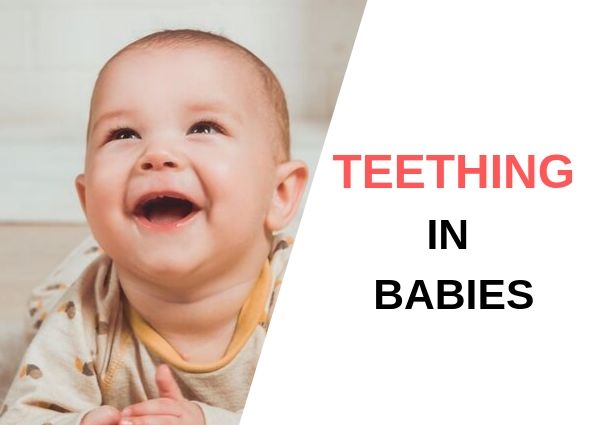Teething In Babies
In the following, we are going to be discussing a crucial topic that’s “Teething in babies” and will discuss it in detail within the article. The first tooth is a huge event in your baby’s young life, however, it can be uncomfortable. The more you know about teething, the better you can help your baby get through it. The pediatrician will monitor your baby’s teeth for decay and will decide if a referral to a dentist is required prior to age one. In lower-risk kids, the pediatrician can continue to screen teeth until age three.
Signs of Teething
Most babies begin to teethe between 4-7 months old. But some start much later. The symptoms aren’t identical for every baby, however, they may include:
- Swollen, tender gums
- Fussiness and crying
- A slightly/little raised temperature (which is less than 101 F)
- Gnawing or wanting to chew specifically on hard things
- Lots of drool
- Changes in eating or sleeping patterns
Teething may be painful; however, it doesn’t typically make babies sick. Call your doctor if your baby has vomiting, diarrhea, a higher fever, rashes on the body, or cough as well as congestion. These aren’t normal signs of teething. Get in touch with our team for the best pediatrician in West Delhi
Soothe a Teething Baby
What works to soothe a friend’s baby may not work for yours. You may need to attempt different things to help your kid feel better. Often, something cold in your baby’s mouth helps. Try a cold pacifier, spoon, clean wet washcloth, or a solid (not liquid) refrigerated teething toy or ring. Some specialists say frozen teething toys are too cold and may hurt your baby’s mouth. Make sure to wash teething toys, washcloths, and other things after the baby uses them.
Babies love to chew particularly those who are teething. It’s okay to let your baby chew as much as she wants. Just make sure you know what she’s putting into her mouth and that it’s safe and clean. A hard, unsweetened teething cracker can be comforting. If your baby is older than 6-9 months, you’ll be able to offer cool water from a sippy cup, too.
You can additionally massage her gums by gently rubbing them with your clean finger. You can let your baby gnaw on your finger if the teeth haven’t come in yet. If you’re nursing your baby, then try dipping your fingers in cool water and massaging her gums before each feeding. That may actually keep her/him from biting your nipple while nursing.
Teething Necklaces
Child health experts don’t recommend teething necklaces. They’re dangerous: They can strangle the baby. She also can choke if the necklace breaks and she or he swallows the beads. If you do choose to use one, make sure to:
- Put it on a wrist or even ankle, but not around her/his neck.
- Always watch your baby when she’s or he’s wearing it.
- Take it away when you aren’t watching your baby, even for a very short time.
- You may have heard that amber teething necklaces release a pain reliever once heated. That’s not proven, as of yet and doctors say using one is not such a good idea.
Teething Medicine
Medicine that you simply rub on your baby’s gums to stop the pain of teething may not help. It quickly washes away in the mouth. Stay away from over-the-counter teething gels as well as liquids that have the ingredient such as benzocaine. The FDA says this ingredient shouldn’t be given to children under 2.
It can cause rare but serious side effects. A small dose of a children’s pain reliever, like acetaminophen or ibuprofen, could help your baby. But ask your doctor before giving her any medication, and use it exactly as the doctor says. Teething can be rough for you and your baby at first. But it’ll get easier as you both learn how to soothe each new tooth that pops out.

